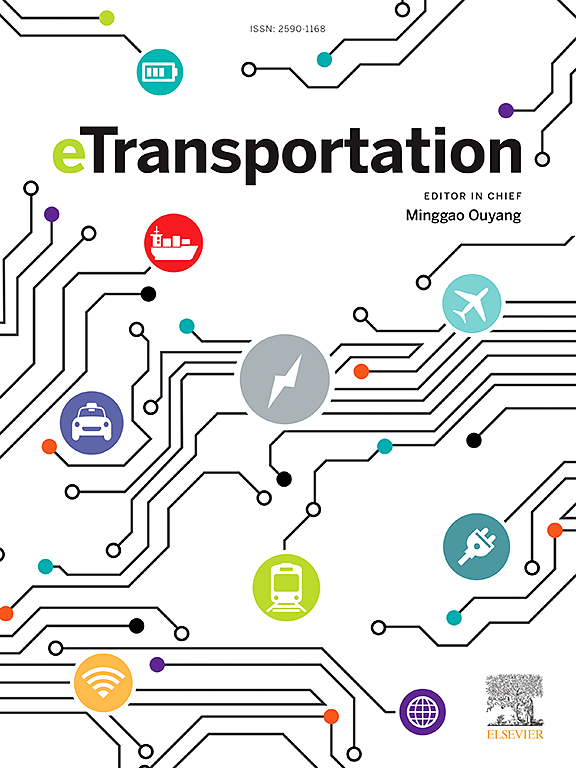Solid oxide fuel cells for aviation: A comparative evaluation against alternative propulsion technologies
IF 17
1区 工程技术
Q1 ENERGY & FUELS
引用次数: 0
Abstract
Conventional aircraft emit high greenhouse gases, hindering aviation decarbonization. Among sustainable solutions, battery-electric planes face range limitations, while renewable fuels can cut emissions without sacrificing endurance. Fuel cells enable full electrification, powering propulsion and auxiliary systems. Although they have lower power density than combustion engines, their promising efficiency can potentially reduce overall weight.
This study compares fuel cell and conventional propulsion systems, focusing on Solid Oxide Fuel Cells (SOFCs) and Proton-Exchange Membrane Fuel Cells (PEMFCs). The initial literature review emphasizes the potential of SOFCs for aviation and discusses ongoing projects, forming the basis for the subsequent technical analysis. A break-even analysis examines flight durations in which fuel cell systems match the weight of conventional alternatives. Additionally, various fuels and storage methods, including jet fuel and hydrogen, are assessed. Results show that jet fuel SOFCs are currently the lightest fuel cell option, while PEMFCs with liquid hydrogen require higher power density and lighter storage to compete. Looking ahead, liquid hydrogen storage appears most viable, with PEMFCs better for short-range and SOFCs for long-range flights. An environmental analysis evaluates CO2 emissions across European countries, identifying break-even grid carbon intensities for jet fuel and hydrogen SOFCs. These findings highlight fuel cells' potential to reduce aviation's environmental footprint.

航空固体氧化物燃料电池:与替代推进技术的比较评价
传统飞机排放大量温室气体,阻碍了航空脱碳。在可持续解决方案中,电池电动飞机面临航程限制,而可再生燃料可以在不牺牲续航能力的情况下减少排放。燃料电池可以实现完全电气化,为推进系统和辅助系统提供动力。虽然它们的功率密度比内燃机低,但它们有希望的效率可以潜在地减轻总重量。本研究比较了燃料电池和传统推进系统,重点研究了固体氧化物燃料电池(SOFCs)和质子交换膜燃料电池(pemfc)。最初的文献综述强调了SOFCs在航空领域的潜力,并讨论了正在进行的项目,为随后的技术分析奠定了基础。一项收支平衡分析检查了燃料电池系统与传统替代品重量相匹配的飞行持续时间。此外,还评估了各种燃料和储存方法,包括喷气燃料和氢气。结果表明,喷气燃料sofc是目前最轻的燃料电池选择,而使用液氢的pemfc需要更高的功率密度和更轻的存储才能与之竞争。展望未来,液氢储存似乎是最可行的,pemfc更适合短程飞行,sofc更适合远程飞行。一项环境分析评估了欧洲各国的二氧化碳排放量,确定了航空燃料和氢sofc的盈亏平衡电网碳强度。这些发现突出了燃料电池在减少航空环境足迹方面的潜力。
本文章由计算机程序翻译,如有差异,请以英文原文为准。
求助全文
约1分钟内获得全文
求助全文
来源期刊

Etransportation
Engineering-Automotive Engineering
CiteScore
19.80
自引率
12.60%
发文量
57
审稿时长
39 days
期刊介绍:
eTransportation is a scholarly journal that aims to advance knowledge in the field of electric transportation. It focuses on all modes of transportation that utilize electricity as their primary source of energy, including electric vehicles, trains, ships, and aircraft. The journal covers all stages of research, development, and testing of new technologies, systems, and devices related to electrical transportation.
The journal welcomes the use of simulation and analysis tools at the system, transport, or device level. Its primary emphasis is on the study of the electrical and electronic aspects of transportation systems. However, it also considers research on mechanical parts or subsystems of vehicles if there is a clear interaction with electrical or electronic equipment.
Please note that this journal excludes other aspects such as sociological, political, regulatory, or environmental factors from its scope.
 求助内容:
求助内容: 应助结果提醒方式:
应助结果提醒方式:


